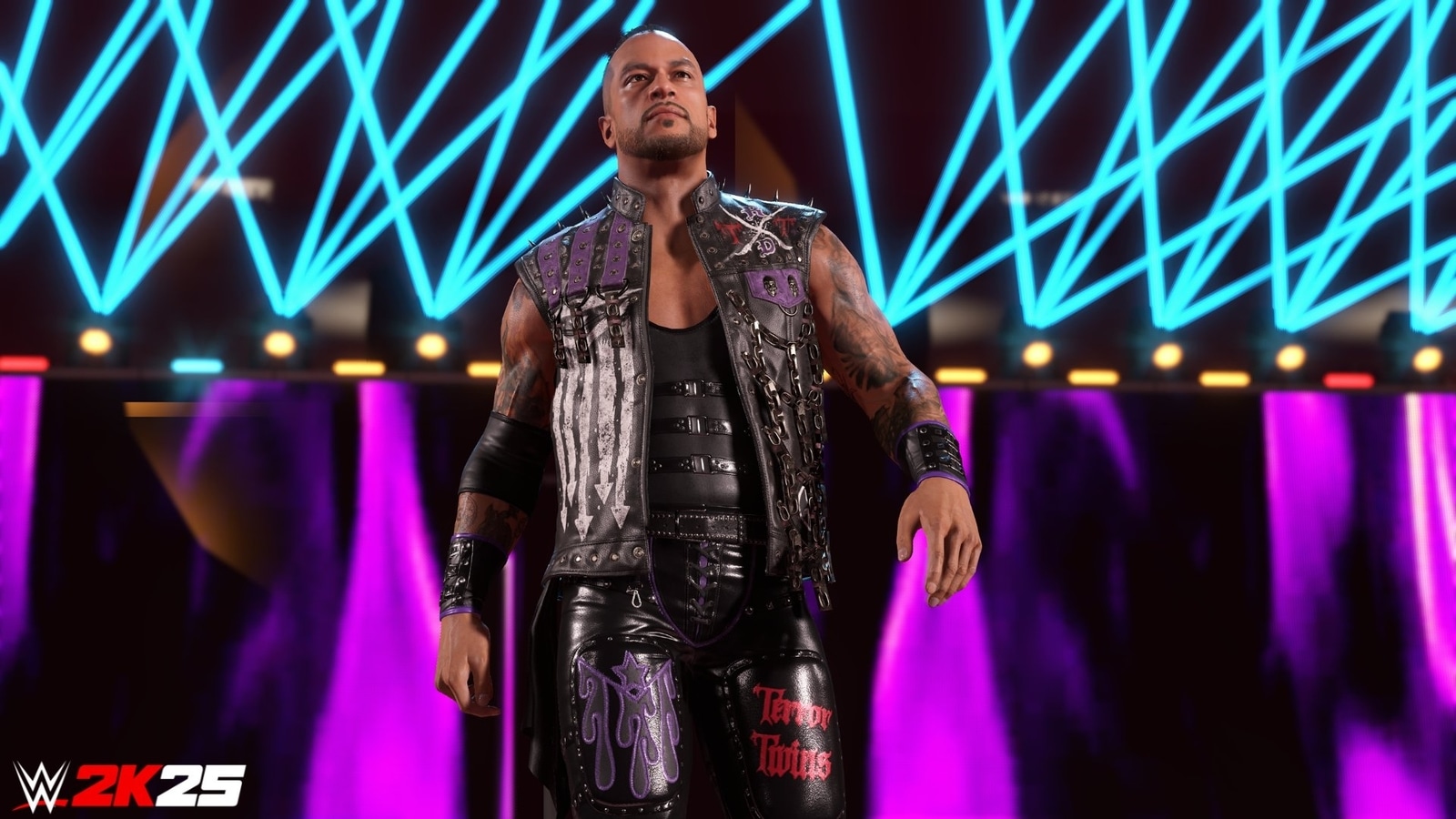Alongside other congressional leaders, Jeffries has come face to face with Biden at critical junctures — during negotiations on how to avert a debt ceiling collapse and while sending critical aid to foreign allies — and casually at House Democratic retreats. But the would-be House speaker has never huddled with the president to discuss the sensitive and potentially consequential matter of whether House Democrats believe Biden can defeat former president Donald Trump in November.
The meeting was disclosed by Jeffries in a letter he sent to House Democrats on Friday morning and comes after a week in which he listened intently to every faction of a diverse caucus before delivering his assessment to Biden.
“On behalf of the House Democratic Caucus, I requested and was graciously granted a private meeting with President Joe Biden,” Jeffries said in the letter. “In my conversation with President Biden, I directly expressed the full breadth of insight, heartfelt perspectives and conclusions about the path forward that the Caucus has shared in our recent time together.”
But Jeffries offered no further details, and didn’t say publicly what kind of message he’d delivered to the president, an omission his office said was intentional. He has previously personally voiced backing for Biden, but not made a statement about where House Democrats stand.
“The letter sent by Leader Hakeem Jeffries to his House Democratic colleagues speaks for itself. It was a private conversation that will remain private,” said Christie Stephenson, communications director for Jeffries.
But concerns on Capitol Hill from all corners of an often volatile caucus were mounting all week, as even some of Biden’s staunchest defenders expressed doubt about his ability to win reelection. Publicly and privately, there was widespread panic among politically vulnerable members about what some viewed as the inevitability of their ship sinking with Biden come November.
Michael Tyler, the Biden campaign’s communications director, also told reporters Friday that he would not provide a readout of the private conversation. But he said he believes that “leader Jeffries and others have made clear that they continue to stand with the president” and that they “understand that the president is running.”
Meanwhile, Biden met virtually with members of the Congressional Hispanic Caucus on Friday afternoon. During that meeting, Democratic Rep. Mike Levin, who represents a California swing district, asked Biden to step aside “for the good of his constituents and the country” after hearing concerns from his constituents, according to three people familiar with the call.
In response, Biden said he understood the concerns that many may have about his age and why he must prove himself to lawmakers and the public.
“That’s why I’m going out and letting people touch me, poke me, ask me questions,” Biden said, according to a person familiar with his remarks. “It’s a legitimate concern for people, but that’s why I think it’s important I got to get out and show people everything from how well I move to how much I know, and that I’m still in good charge.”
Publicly, Jeffries has said he supports the president. He did not coordinate with nor has he publicly echoed former House speaker Nancy Pelosi (D-Calif.), who told “Morning Joe” this week that it was Biden’s “decision” about whether to run again, despite the fact the president had made clear he had already decided to go ahead with his campaign.
Notably, Rep. James E. Clyburn (S.C.), one of the most respected House Democrats whose endorsement proved pivotal to Biden’s 2020 campaign, said on NBC’s “Today” show Friday that he enthusiastically supports the president and called on Democrats to focus on touting the Biden-Harris administration’s achievements. But he notably left the door open to a potential top-of-the-ticket change, mirroring Pelosi.
“If he decides to change his mind later on, then we will respond to that,” Clyburn said. “We have until the 19th of August to open our convention. And so I would hope we’d spend our time now focusing on the record we would lay out for the American people.”
As of Friday morning, Senate Majority Leader Charles E. Schumer (D-N.Y.) and Biden had not talked since their one call last week, according to a person familiar with the development.
Multiple lawmakers and aides who attended several meetings that Jeffries held this week painted a grim picture of Biden’s standing. The same widespread worries were repeated across those meetings, and heard not only by Jeffries but also by his lieutenants — Minority Whip Katherine Clark (D-Mass.) and Caucus Chair Pete Aguilar (D-Calif.).
In several of those meetings, Jeffries told lawmakers that he would listen and ultimately relay their viewpoints to Biden, according to two people familiar with the remarks.
As of Friday afternoon, 21 House Democrats had called on Biden to drop out of the contest, citing several reasons that they believe their party leader is too weak to beat Trump in November. One senator — Pete Welch (D-Vt.) — made the same argument.
Of those 21, only five came out against Biden after his closely watched news conference Thursday evening, which Hill Democrats expressed all week would serve as a barometer on whether to publicly speak out.
The handful of public detractors out of 264 House Democrats is relatively low and — as of Friday afternoon — certainly did not amount to the cascade of lawmakers who some privately predicted could call for Biden’s exit after the NATO summit ended Friday.
But the small public numbers belie the significantly higher amount of House Democrats who remain deeply worried that Biden and his campaign do not have a pathway to win, according to multiple House Democrats and aides familiar with the concerns.
That anxiety reflects widespread panic that the president remaining atop the ticket could gravely affect House Democrats’ chances of retaking the majority. Jeffries had high hopes of becoming speaker because Democrats must gain just a net of four seats to regain the majority.
Now that the NATO summit is over, Biden and his campaign are ramping up their outreach to key Democratic constituencies. Biden will have met with the CHC, the Congressional Asian Pacific American Caucus and the Congressional Progressive Caucus between Friday and Saturday afternoon.
“Does there continue to be anxiety? Yes. We understand that. The president understands that. That’s why we continue to engage with folks on the Hill,” Tyler said Friday aboard Air Force One.
One thing seems clear: House Democrats don’t agree on a path forward, divided over the extent to which they define the moment as being bigger than Biden. Those with overwhelming concern about his electability privately say the president must recognize that preserving democracy and ensuring Trump doesn’t recapture the White House is beyond his personal ambitions. Those staunchly in Biden’s corner say Democrats must immediately unite around him to avoid losing sight of defeating Trump and his agenda.
Jeffries and other lawmakers are digesting recent national polls and their own internal campaign data, according to multiple lawmakers and aides, who like others spoke on the condition of anonymity to discuss private deliberations.
Sentiment among House Democrats fluctuated day-to-day this week — and depending on the corner of the caucus.
But a telling shift occurred midweek when Biden’s backing began to crumble within the CBC, a group of roughly 60 members referred to as the “conscience of Congress” and viewed as the backbone of his support. Concerns, which echoed those of other lawmakers, centered on pushing Biden’s orbit to make staff changes aimed at listening better to lawmakers on how to best message constituents in their districts — and ensuring the president does not hemorrhage support in critical states.
Though not shared by all of the group’s members, general CBC support for Biden also tested Jeffries, who has immense respect for the bloc as a fellow CBC member.
House Democrats met behind closed doors Tuesday morning for almost two hours in a conversation that was described by multiple people familiar with it as somber, candid and emotional. Opinions ranged from insisting the party come together or risk appearing like it can’t govern, to grave worries about chances of recapturing the majority with Biden as their running mate.
No consensus was reached in that meeting, nor by the time members left Washington on Thursday. But several lawmakers and others familiar with their thinking privately described a political paralysis that might not soon be shaken.
That stasis persisted Friday, well after Biden’s news conference, where he displayed a fluidity on foreign policy while making some verbal missteps.
The paralysis, one lawmaker said, felt as if Democrats were “marching towards their death,” believing it was inevitable that Biden would lose to Trump.
Support within the Hispanic caucus, which contains 42 lawmakers, has remained fluid. Only Reps. Raúl Grijalva (D-Ariz.), Marie Gluesenkamp Perez (D-Wash.) and now Levin have said Biden will lose if he remains in the race. There’s a divide between those publicly backing Biden, those who say they will continue to observe the president on the campaign trail before casting judgment and those haven’t publicly opined.
Jeffries held two meetings this week with Democrats in competitive seats who were incredibly tough on Biden. The gatherings were described as intense and honest, according to multiple people familiar with them. Members were unequivocal that Biden needed to step aside, or ultimately risk their reelection chances and possibly prevent Jeffries from becoming speaker in a Democratic House.
Some argued that they would automatically be in better political shape if Vice President Harris becomes the nominee, because she would immediately eliminate the age question and help Democrats refocus on Trump.
Jeffries also met with the New Democratic Coalition leadership team, which represents almost 100 pragmatic liberal and moderate Democrats, who shared concerns that deep divisions undermined the party itself and its to beat Trump. The team urged the minority leader to help shift attention back to Trump ahead of the GOP convention in Milwaukee starting Sunday.

























